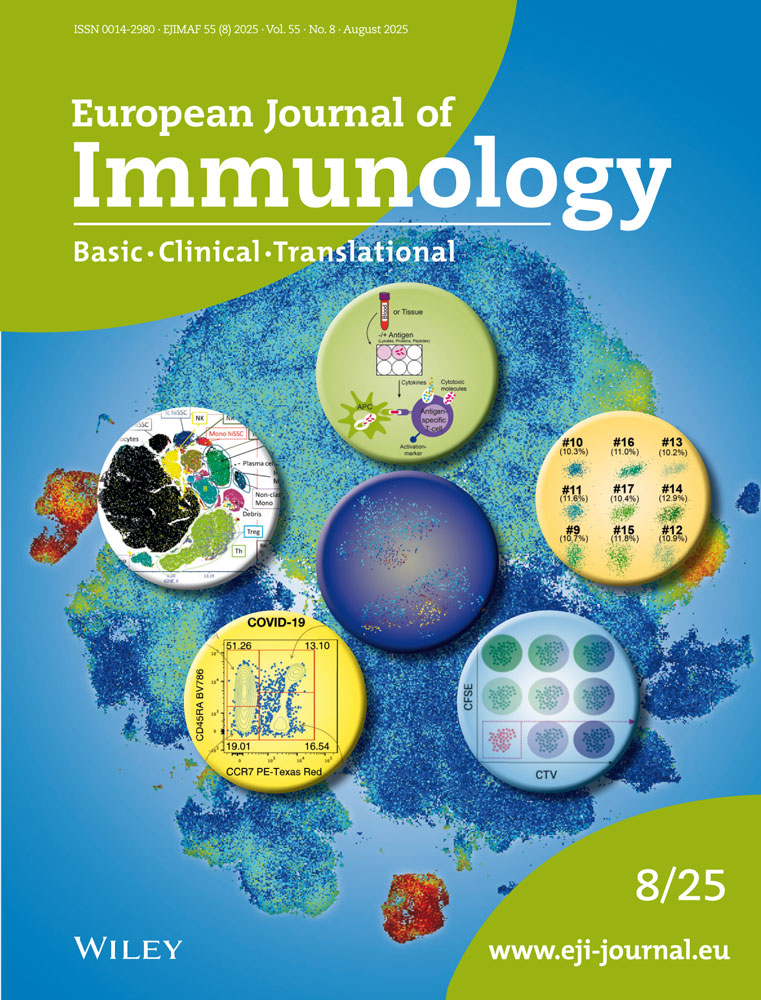Selective stimulation of human t lymphocyte subsets by heteroconjugates of antibodies to the t cell receptor and to subset-specific differentiation antigens
Abstract
Ligand binding under conditions that generate microaggregates of the T cell receptor complex (Ti/CD3) with the membrane molecules CD4 or CD8 can induce activation of small resting T lymphocytes. We demonstrate this by using soluble dimeric heteroconjugates consisting of monoclonal antibodies to CD4/CD8 and of a novel anti-CD3 monoclonal antibody (BMA 030) which even in aggregated form is not stimulatory on its own under limiting conditions in the absence of accessory cells. Using combinations of BMA 030 with either anti-CD4 or anti-CD8, the corresponding T cell sub-population could be selectively expanded in vitro. Selective expansion of T cell sub-populations in vitro or in vivo might be helpful for certain therapeutical manipulations. In addition, this finding may contribute to a better understanding of major histocompatibility complex-restricted T cell activation.




